Assessment: effective Ebola communication requires respect and transparency
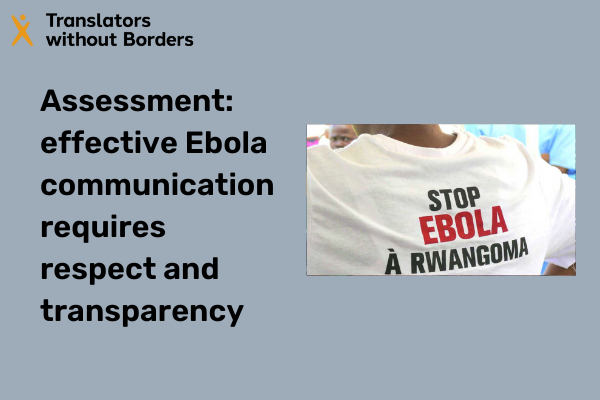
In the second year of the current Ebola outbreak response in the Democratic Republic of Congo (DRC), people at risk still don’t have clear […]
Missing the mark? People in Eastern DRC need information on Ebola in a language they understand
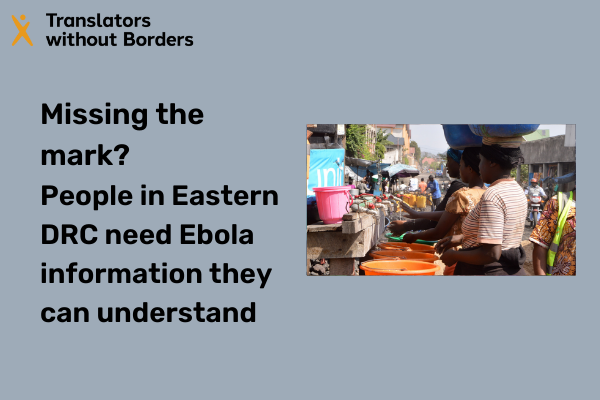
People at risk of contracting Ebola need information to keep themselves and their families safe. Information they don’t understand will not help them. They […]
The language lesson: What we’ve learned about communicating with Rohingya refugees
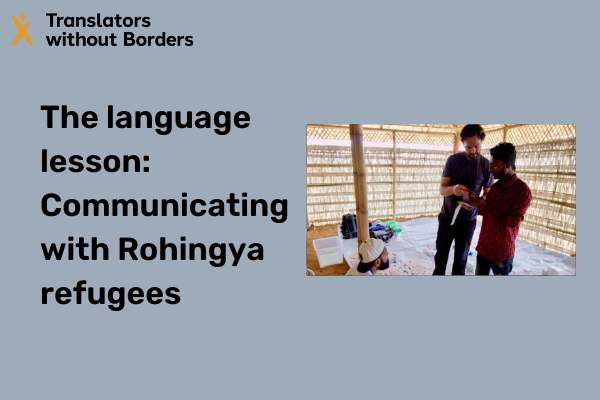
Rohingya refugees have a right to information and two-way communication in their own language, in a format they understand, and through channels they prefer […]
The language of leadership: The words that define how majhis are seen and understood in the Rohingya refugee response
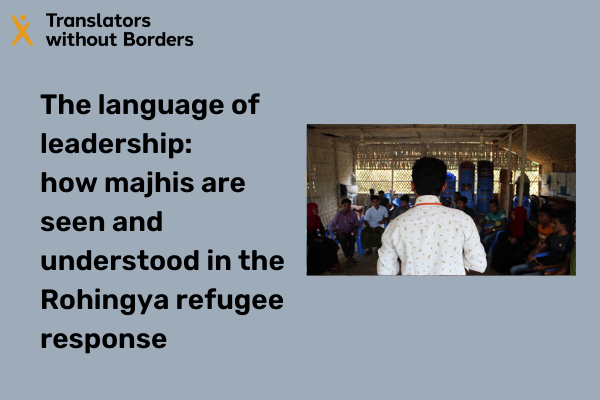
Language for learning: How language use affects Rohingya children’s educational experience in Cox’s Bazar
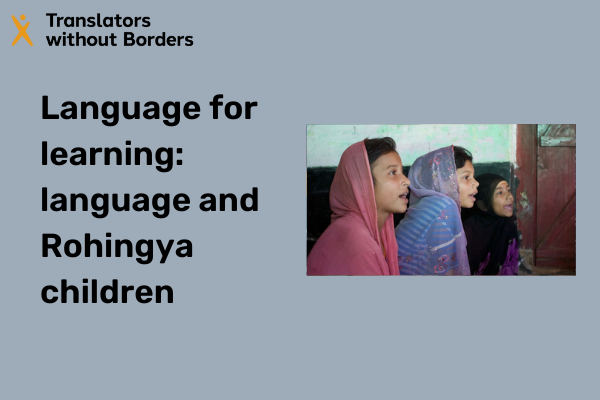
This report examines how language use affects Rohingya refugee children’s educational experience in the camps around Cox’s Bazar in Bangladesh. We identified four key […]
Giving birth and caring for newborns in the Rohingya camps
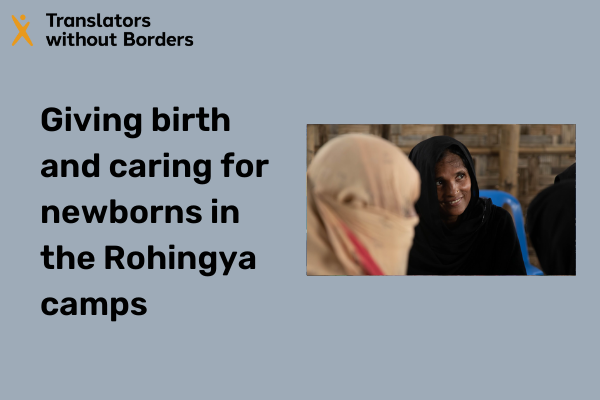
Rohingya women’s pregnancy experiences and perspectives
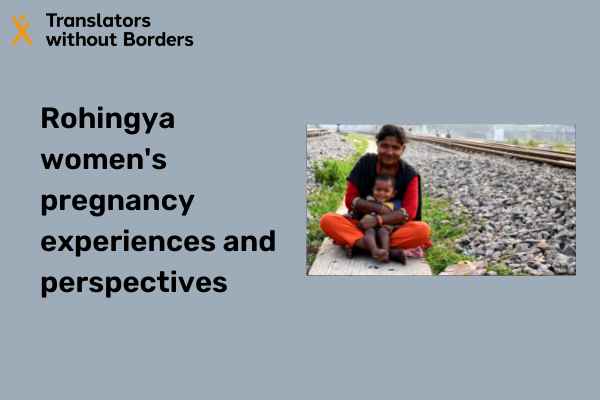
Community health workers: The main source of health information for Rohingya women
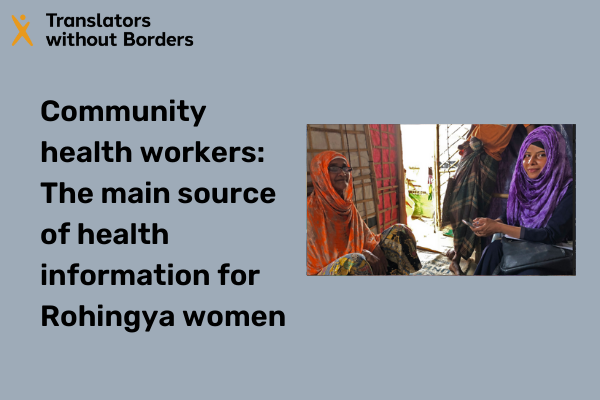
How Rohingya people think and talk about food and nutrition
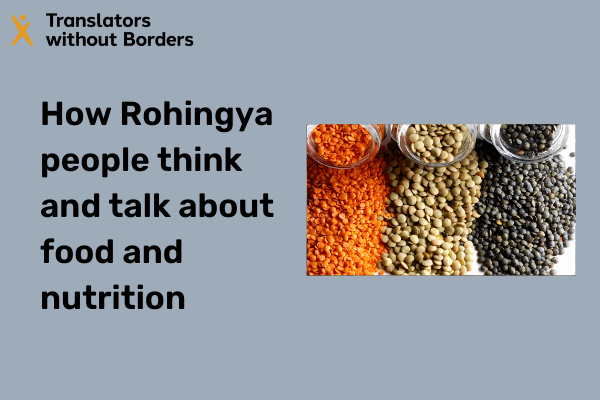
Cox’s Bazar common service evaluation 2021
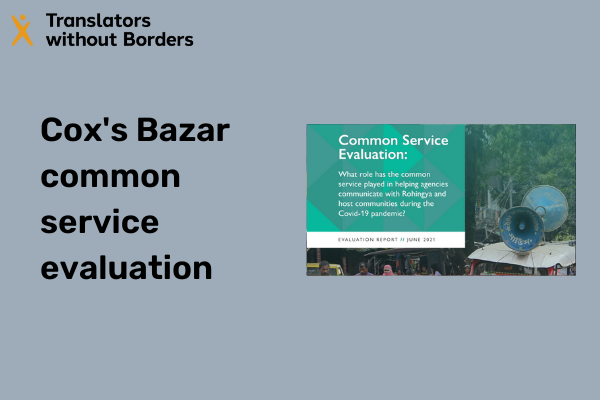
Read our report to learn what role has the common service played in helping agencies communicate with Rohingya and host communities during the COVID-19 […]